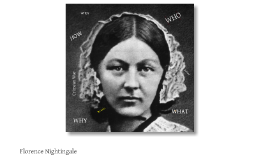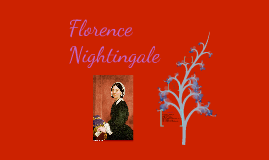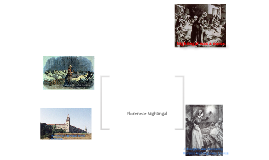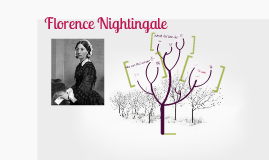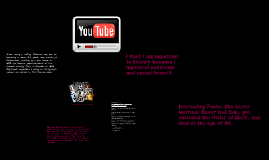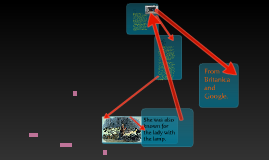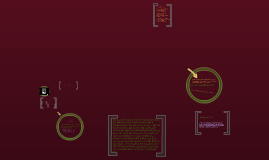Florence Nightingale
Transcript: That pateints are accustomed to the filth and it does them no harm" is not only thought but said even in the present year of grace (or Disgrace) 1893. Founded Florence Nightingale School of Nursing Her accomplishments... Her most famous piece of writing is " Notes on Nursing: What it is, and What it is not. By Florence Nightingale. Harrison and Sons, 1860. My mind is absorbed with the idea oof the sufferings of man, it besets me behind and before...all that poets sing of the glories of this world seems to me untrue. All the people I see are eaten up with care or poverty or disease. 12 May 1850: "Today I am 30-The age Christ began his mission. Now no more childish things. No more love. No more marriage. Now Lord, let me think only of Thy Will, what thou willest me to so. Oh Lord, Thy Will, Thy Will." The Lady with the Lamp The wounded from the battle-plain In dreary hospitals of pain The cheerless corridors The cold and stormy floors. Lo! in that house of misery A lady with a lamp I see Pass through the glimmering gloom And flit from room to room And slow, as in a dream of bliss The speechless sufferer turns to kiss Her shadow, as it falls Upon the darkening walls Florence used her eye for detail and inovative mind to improve the patient's care. Two figures emerged from the Crimea as heroic, the solider and the nurse. In each case a transformation took place, and in each case the transformation was due to Miss Nightingale. Never again was the British solider to be ranked as a drunken brute, the scum of the earth. He was now a symbol of courage, loyalty, and edurance, not disgrace but a source of pride. Never again would the picture of nurse with her own image... IN the midst of the muddle and the filth, the agony had brought about a revolution. (Cecil Woodham-Smith in Florence Nightingale, 1951) Florence had a passion for helping sick people and used that passion to change the face of nursing... Nursing is an art; and if it is to be an art, requires as exculsive a devotion, as hard a preparation, as any painter's or sculptor's work; for what is the having to do with dead canvas, or cold marble, compared with having to do with the living body the temple of God's spirit...It is one of the fine arts; I had almost said, the finset of the arts. Light is essential for growth, health and recovery from sickness - not only daylight, but sunlight. This should be meant to include color, pleasant and pretty sights for the patient's eyes to rest on - varitey of objects, flowers, pictures. The sun is a sculptor as well as a painter. Woman of GOd We do the best we can to train our women to an idle superficial life; we teach them music and drawing, languages and poor peopling; "resources" as they are called and we do hope that if they don't marry they will at least be quiet. -Florence Nightingale






